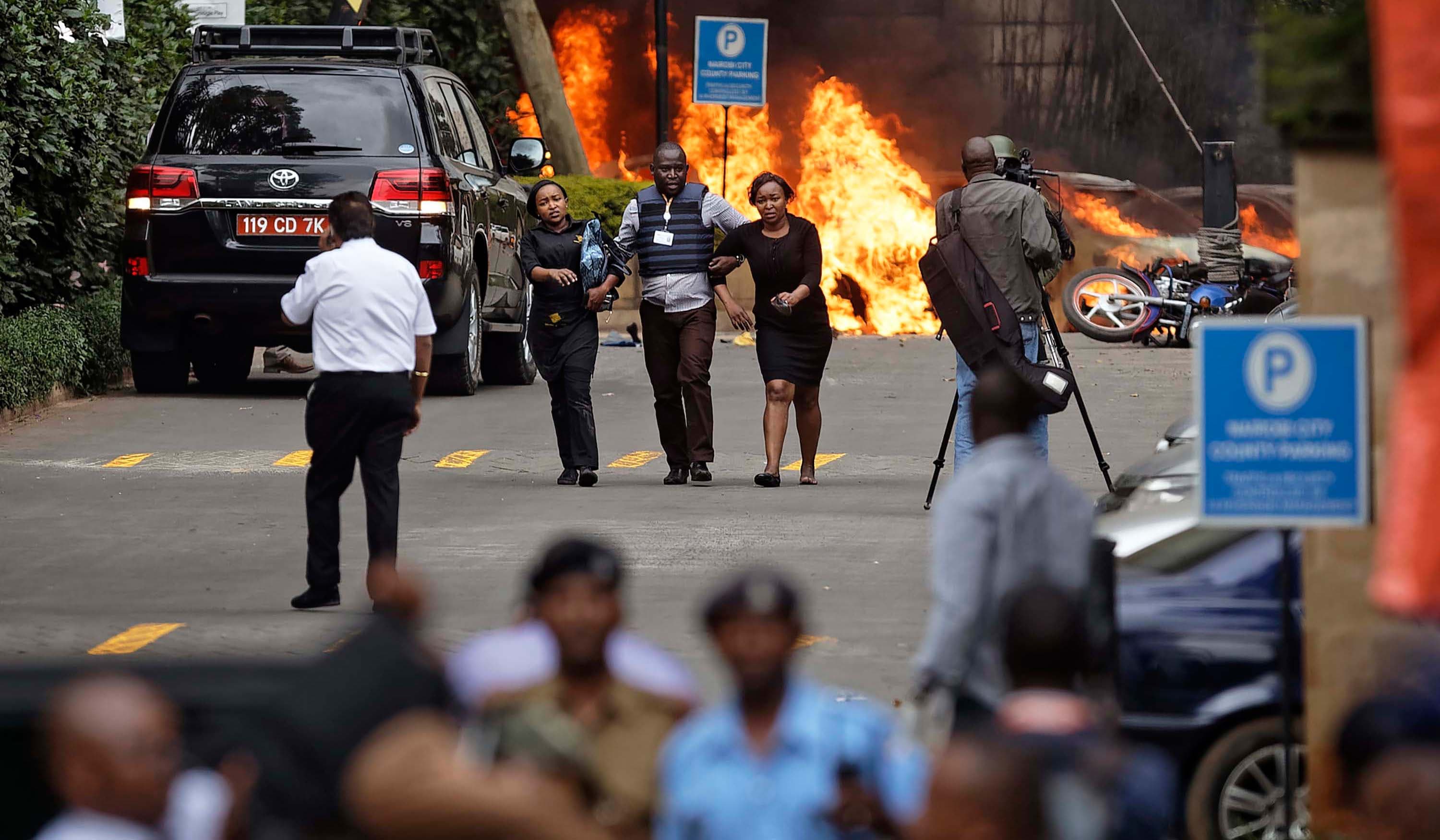We're loading the full news article for you. This includes the article content, images, author information, and related articles.
Three individuals were arrested in Nairobi, Wednesday, October 8, 2025, on suspicion of mobilising to commit murder, raising concerns about organised crime and its potential impact on public safety in urban areas.

Nairobi law enforcement authorities on Wednesday, October 8, 2025, apprehended three individuals suspected of forming a 'kill team' allegedly planning to murder a man near a childcare centre in Nairobi's south-west. Police confirmed the arrests, stating the trio was 'mobilising to carry out an offence.'
This incident underscores the persistent challenge of organised crime in Kenya, a country ranked 16th globally in criminality by the 2023 Global Organized Crime Index. Analysts suggest such developments could significantly influence public debate and policy execution, with stakeholders calling for greater clarity on timelines, costs, and safeguards in combating criminal networks.
Kenya has long grappled with organised criminal groups, which often exploit socio-economic vulnerabilities like unemployment and landlessness. Historically, groups such as the Mungiki sect, outlawed by the government, have been associated with ethnic violence and anti-government resistance. While the Mungiki's influence has fluctuated, their activities, including extortion and violence, highlight the deep-rooted nature of such organisations.
The influence of criminal elements extends into the political sphere, with reports indicating that corruption and criminal influence undermine governance. Some opposition parties have allegedly been sponsored by individuals involved in illicit activities like drug trafficking, leading to a reluctance to publicly condemn organised crime. This entanglement of crime and politics often thwarts effective state-level responses.
Kenya possesses one of the region's most robust legal frameworks against organised crime, notably the Prevention of Organized Crimes Act, 2010. This Act grants the government powers to proscribe groups and imposes severe penalties, including jail terms ranging from 14 years to life imprisonment for those found guilty of leading, supporting, or fundraising for criminal organisations.
Despite these legislative strengths, implementation remains a significant challenge due to corruption, weak institutional capacity, and a lack of harmonisation within national policies. The Directorate of Criminal Investigations (DCI) has, however, reaffirmed its commitment to combating financial crimes, money laundering, terrorism financing, and organised crime through enhanced financial investigations and a multi-agency approach. Training initiatives, such as the Financial Investigations and Asset Recovery Training, aim to equip officers with essential skills to adapt to evolving criminal tactics.
Law enforcement agencies, including the DCI and the National Police Service, are key stakeholders in this fight. The DCI recently foiled an attempt to smuggle cocaine through Jomo Kenyatta International Airport (JKIA), leading to an arrest and highlighting the ongoing efforts against transnational organised crime. Furthermore, the Transnational Organised Crime Unit of the DCI recently rescued 21 Kenyans who were being illegally recruited to fight in Russia, arresting a Russian national in connection with the syndicate.
However, concerns about police misconduct persist. Human rights groups and relatives have accused Kenyan authorities of covering up alleged police killings, unexplained abductions, and illegal detentions, particularly in relation to anti-government protests. Reports suggest that some deaths during protests, recorded by police as accidents, were in fact due to gunshots. The Independent Policing Oversight Authority (IPOA) is mandated to investigate such claims, but convictions of officers remain low.
The 2025 Economic Survey by the Kenya National Bureau of Statistics (KNBS) indicates that Nairobi City Police Command Station recorded the highest number of crimes in 2024, accounting for 9.6 percent of the national total, despite an overall national drop in reported crimes by 3.5 percent. While overall crime rates saw a marginal reduction in the first half of 2025 compared to 2024, incidents of robbery with violence recorded a 22.76 percent increase in gazetted cities between Q1 and Q2 2025.
The continued prevalence of organised crime poses significant risks to Kenya's security, economic stability, and human rights. Transnational organised crime, including human trafficking, drug trafficking, and money laundering, not only undermines governance but also fuels corruption and deprives citizens of safety and prosperity. The collusion between criminal gangs and corrupt public officials further enables criminal activities and erodes public trust in institutions.
The full extent of police involvement in extrajudicial killings and enforced disappearances remains a significant controversy. While police deny such allegations, human rights organisations continue to document cases and call for accountability. The alleged involvement of a secretive unit within the DCI, known as the Operation Action Team, in violent crackdowns during protests further fuels these concerns.
The DCI's recent commitment to combating financial crimes and the ongoing training initiatives signal a proactive approach. The Director of Public Prosecutions (DPP) Renson Ingonga, on Tuesday, September 16, 2025, emphasised the need for stronger cross-border collaboration, harmonisation of domestic laws with international conventions, and enhanced institutional capacity to combat transnational organised crime.
Observers will be closely watching the effectiveness of the DCI's enhanced financial investigations and asset recovery efforts. The outcomes of investigations into alleged police misconduct and the implementation of recommendations from human rights bodies will also be critical in addressing public concerns and strengthening accountability within the security sector. Furthermore, the government's response to the rising femicide rates and the task force established to address gender-based violence will be under scrutiny.
Keep the conversation in one place—threads here stay linked to the story and in the forums.
Sign in to start a discussion
Start a conversation about this story and keep it linked here.
Other hot threads
E-sports and Gaming Community in Kenya
Active 9 months ago
The Role of Technology in Modern Agriculture (AgriTech)
Active 9 months ago
Popular Recreational Activities Across Counties
Active 9 months ago
Investing in Youth Sports Development Programs
Active 9 months ago
Key figures and persons of interest featured in this article